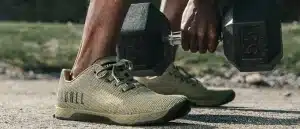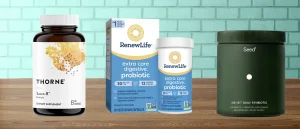This TikTok Doc’s “Instant Tool to Calm Down” is Backed by Legit Science
Ever heard of the vagus nerve? It’s cool, neither had I. But this morning I got schooled on the vagus—and its power to dial down stress—on TikTok, of all places (file under: sentences I never thought I would write).
Dr. Karan Raj has a reputation for breaking down complex medical ideas for his 5 million followers. The gist of his most recent video: Stimulating the vagus nerve by gargling water, singing, or humming for 10 seconds can provide instant stress relief.
I was skeptical. TikTok isn’t exactly my go to for medical advice. But—as someone who constantly looks for a quick fix, especially when it comes to my (least) favorite hobby of stressing out—curiosity won out. And since Dr. Raj looked legit in his medical scrubs (not to mention a seriously impressive beard), I figured it was at least a shot.
@dr.karanr Instant tool for calmness
♬ Night Trouble - Petit Biscuit
What is the Vagus Nerve?
The vagus nerve is the main parasympathetic superhighway between your brain and your major organs. It runs from your skull, down both sides of your neck to your abdomen, touching almost every organ it passes along the way.
The vagus helps regulate involuntary functions like digestion, sneezing, and heart rate. It also helps your nervous system switch between the parasympathetic mode—the so-called “rest and digest” mode—and the sympathetic “fight or flight” mode.
When you’re under stress, your fight or flight response goes into hyperdrive. Stimulating the vagus nerve—and this is where the good TikTok doctor’s technique may come in—could help the parasympathetic system to step in and help you calm down.
Health
What Does That Have to do With Gargling?
In the video, Dr. Raj explains that when you hum, gargle, or sing, it activates muscles in the back of your throat that are connected to the vagus nerve, helping your body calm the eff down.
Not all researchers agree that vagus nerve-stimulating exercises can have as big of an impact as Dr. Raj claims. But some studies have found linked vagal tone with being better able to regulate your stress response. And a clinical trial is currently looking into whether vagus nerve stimulation can help patients with treatment-resistant depression.
A bonus: stimulating the vagus nerve also increases heart rate variability (the amount of time between your heartbeats). A higher variability, according to Raj, means you adapt better to those stressful situations. And research has found a positive link between high heart rate variability and vagal tone.
What Happened When I Tried It
As my deadline approached to turn in this piece, I felt my stomach flutter. My palms were sweaty as my fingers flew across the keyboard. My mind started to second guess what my editor would say.
Instead of giving in to the stress, I tried Dr. Raj’s advice. I sat back in my chair, closed my eyes, and hummed Lady Gaga’s “Paparazzi.”
It took a few seconds to get out of my own head. But I started to relax, my shoulders sank back to a natural position, and for a brief second, I smiled– this sh*t actually works. Well done, Dr. Raj. Even if Lady Gaga is now stuck in my head.












